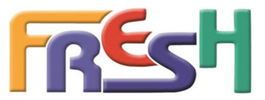Schools, agencies, systems For Reducing risks, Equality, Social development & Health
|
The FRESH Framework: A Summary
Full text Documents: (1) Core Indicators. (2) Thematic Indicators (3) Appendices (4) Cross-Cutting Themes FRESH, an intersectoral framework and global partnership for promoting the educational success, health, and development of school-age children and adolescents through schools, was launched by UNESCO, UNICEF, WHO and the World Bank during the World Education Forum, Dakar in April 2000. Since its launch, these four UN agencies have been joined by several global non-governmental organizations, networks and donors which have endorsed the common approach and agreed to collaborate within the partnership. The FRESH Framework The acronym FRESH originally referred to Focusing Resources on Effective School Health, which identified a set of four essential, common components or pillars of school-based and school-linked health activities selected from a list of multi-faceted approaches and programs used by UN agencies and global organizations in their work within and with education systems.. It promotes collaboration across several sectors to achieve all 17 of the UN 2030 Sustainable Development Goals. The Framework has evolved over the years in recognition of emerging trends and the needs of children and youth. Similar to the cooperation across multiple sectors needed to achieve the UN 2030 Sustainable Development Goals, the Framework retains a broad view of the many facets of health while engaging other sectors working on different aspects of human development such as sanitation & hygiene, safety from violence & crime, equity, inclusion, relief & development aid, social and sustainable development. As the partnership continues its work, the focus on access to schooling, attendance and educational attainment has increased and become central to our discussions. We also emphasize that school systems, need to address the needs of the whole child through a holistic core curriculum and broad educational goals. This salutogenic view of the child should also guide the delivery of health, social and other services, program funding, research grants and donor programs to enable practitioners/agencies to address specific issues holistically. Consequently, the FRESH partners often use the phrase "promoting educational success, health and development" and the multi-coloured icon to reflect the shared goals of many multi-component approaches such as health promoting schools, child-friendly schools, wash in schools, school-health & nutrition, community schools, safe schools, education in emergencies and many others. There is considerable research, experience, program evaluations and data from surveys documenting the effectiveness of these approaches and their topic-focused multi-intervention programs. The FRESH framework lists key components or "pillars" that are common to all of these approaches, These common components are essential infrastructure for delivering all programs and policies. They include:
The FRESH Framework includes several cross-cutting themes that should be considered when delivering the infrastructure. The original list of these themes included effective partnerships, community ownership and child/youth participation. FRESH Partners are expanding that list to address issues related to implementation, capacity and systems change. These include understanding the context, a shared vision, values and principles, promoting intersectoral coordination, implementing,maintaining, scaling up and sustaining programs, building system & organizational capacities, integrating partnerships within the core concerns of education systems, using systems-focused actions and strategies. As well, the Framework includes several topic/problem based themes or multi-intervention programs (MIPs) that can be used to respond to the needs of students in different contexts. These include water/ sanitation & hygiene programs, violence prevention, reducing risk from disasters, nutrition and many others. Practical and realistic indicators to assess progress have been developed for the original 15 themes and more are being developed for new topics such as mental health, child abuse/ exploitation, bullying and family violence. These FRESH components, cross-cutting and topic-based themes promote several skills and values that should be acquired by young people. These include health literacy, global citizenship, life skills, resilience, social responsibility, youth assets/development and social/emotional intelligence among others. It is critically important that countries, agencies and schools focus their resources clearly on the basic, urgent or important needs of their students, building from the strengths of their communities and using the FRESH pillars as an infrastructure to select and deliver effective and sustainable programs within the approaches and strategies deemed to be more relevant to their local situation. The Framework positions the school as a hub within the community to serve students and families. However, outreach activities beyond the school to support parents, engage with community organizations are also important and a part of regional or national strategies. Research and experience has taught us that school-level initiatives or single-focus programs are insufficient and unsustainable without the full involvement of local/regional authorities, ministries and political leadership in several sectors. As well, long-term, capacity-building, systems-based, continuous improvement strategies and actions that are integrated within the core mandates, constraints and concerns of education systems are vitally important. The well-accepted goal of an “Education for All” means ensuring that all children have access to a basic education of good quality that serves the needs and aspirations of the whole child. This implies building or rebuilding schools and education systems, creating an environment in schools and in core education programmes in which children are both able and enabled to learn. Such an environment must be friendly and welcoming, provide access to basic sanitation, promote health, ensure safety, protect children from exploitation, engage students, involve parents and respect teachers. The development of such learning environments is an essential part of the overall efforts by countries around the world to increase access to, and improve the quality, of their schools. The FRESH Partners have agreed to work together towards this common goal for all children and their schooling by encouraging the use of the FRESH Framework to promote the educational success, health and development of all school-age children. |
Quick Access to FRESH Indicators
(Current & Updated Versions) Core Indicators
Cross-Cutting Themes
|
